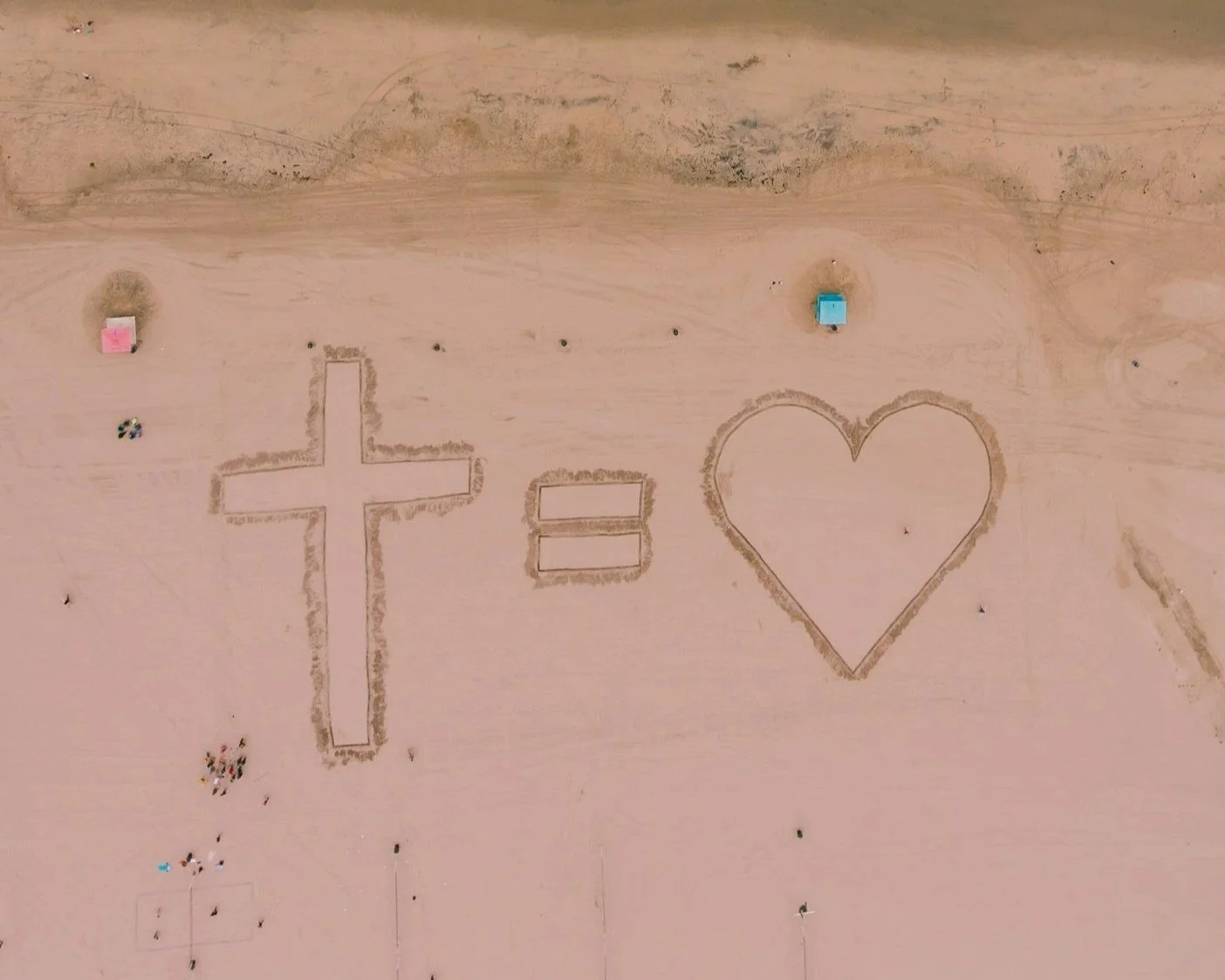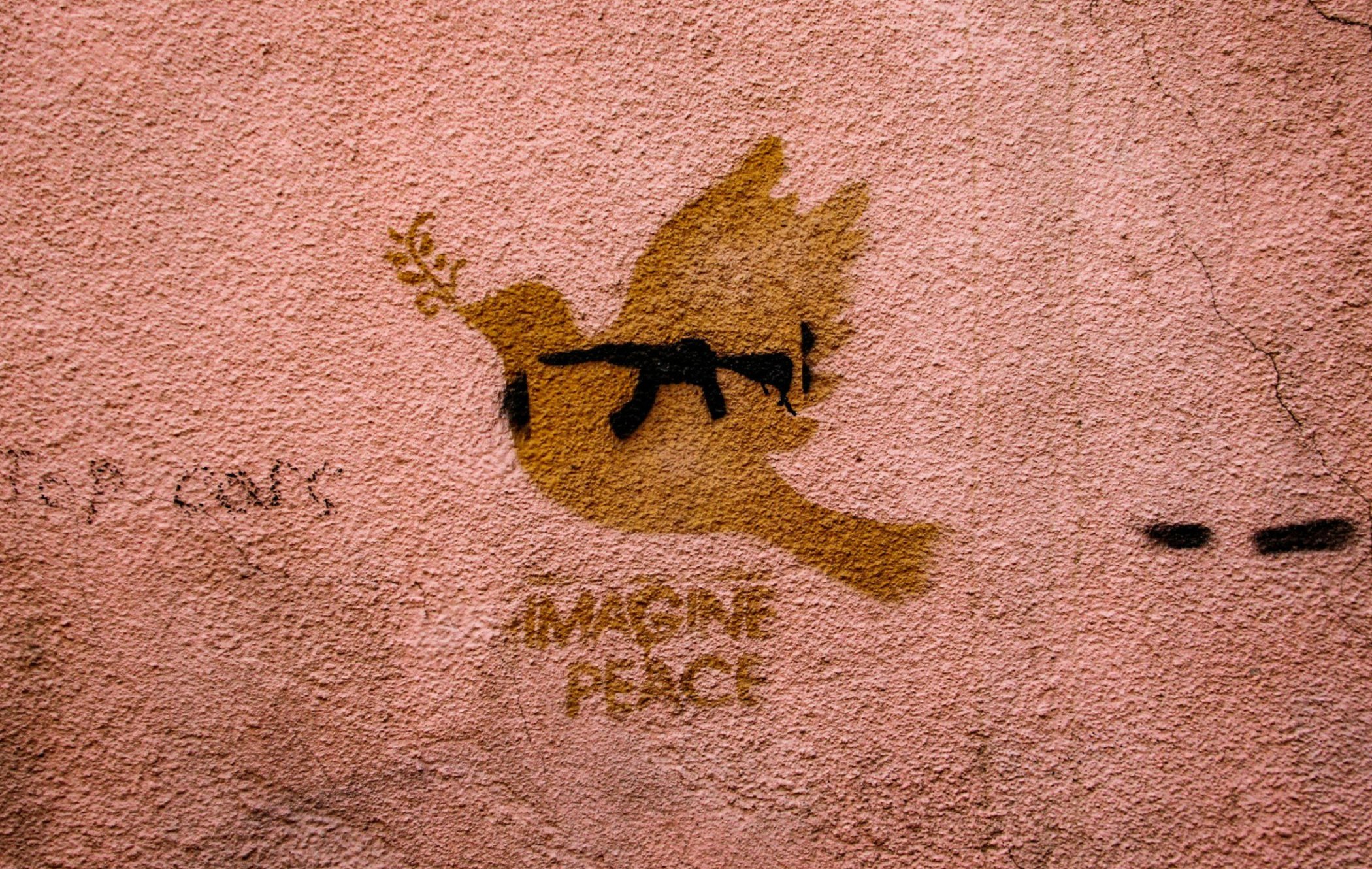Living With Integrity and Practicing Ethical Multi-Faith Relationships
by Bryan Carey
In my multi-faith peacebuilding work, I connect with friends and colleagues of other faiths or no faith to build relationships, humanize “the other,” and work together for the common good. We connect across religious identities to work together; we are not persuading other people to become our religious identity. Although we do not work to change people’s religious identity or convert each other, we are all about multi-faith spiritual care and soul formation. In fact, I would assert that collaborative peacebuilding relationships are the best context for mutually transformative multi-faith conversations and spiritual growth.
The opportunity for such meaningful spiritual growth in peacebuilding contexts arises, in part, because peacebuilding programs are designed to catalyze processes of unlearning and relearning in their participants. For example, in a program building bridges of understanding between two ethnic groups, some participants may experience a significant crisis of meaning where they must rethink their inherited ethnic narrative precisely because they are building new friendships with those who are ethnically different. The same occurs when friendships grow across religious divisions. Because of this, peacebuilding practitioners must be highly attentive to the emotional and spiritual needs of program participants as they unlearn inherited narratives and relearn more complex ones. The task of these leaders is not only to guide participants in connecting with others across divisions, but also to provide emotional and even spiritual support as they grapple with shifting and expanding worldviews.
BUILDING TRUST BY LIVING WITH INTEGRITY
In order to cultivate safe space for both multi-faith spiritual conversations and spiritual support, peacebuilders must build and maintain trust. We cannot build a sustainable positive peace individually or collectively without working to repair harm and rebuild trust. Living with integrity – being honest and having strong moral principles – is essential in the process of building authentic and trusting relationships. When one’s integrity is in question, trust is impossible, and we cannot begin the sacred, healing work of peacebuilding. Ultimately, we are able to build trust with others when they recognize that we are authentically committed to their wellbeing. On the other hand, trust is lost when we prioritize other considerations, including our own personal, ideological, or theological commitments.
GUIDELINES TO LIVING WITH INTEGRITY
In order to engage in authentic and meaningful multi-faith peacebuilding, we must live with integrity. The following three points can help aspiring peacebuilders to do just that:
1. Cultivate an authentic posture of multi-faith hospitality.
Multi-faith hospitality refers to the practice of being welcoming and inclusive to individuals from diverse religious backgrounds. It involves creating an environment that respects diverse beliefs and practices from various faiths. Cultivating this posture of hospitality helps us recognize how we can learn from one another, even while we will at times disagree about important elements of faith and practice. Without multi-faith hospitality, peacebuilding work across faith divisions risks becoming spiritual imperialism in disguise and can easily lack authenticity. Multi-faith hospitality allows peacebuilders to build genuine relationships that allow for mutual learning and transformation, the identification of common goals, and ultimately collaborative work for the common good.
2. Seek to understand your own spirituality, expecting personal experiences of unlearning and relearning.
Peacebuilders are introspective, seek to understand their own spirituality, and are open to examining their own beliefs and biases. This introspective posture helps peacebuilders remain open to experiences of unlearning and relearning as they examine or question preconceived notions and assumptions about various beliefs and practices, whether their own or others’. Unlearning uninformed or biased perspectives allows room for new insights and understanding to emerge, leading to personal growth and more authentic relationships. However, this unlearning and relearning process can be quite painful and result in a significant crisis of meaning, which many peacebuilders have experienced themselves. Having worked through this sometimes painful process personally, peacebuilders stress gentleness and care when working across lines of difference, without imposing their own beliefs onto others.
3. Create safe space for mutual witness.
Peacebuilding work across faith differences does not mean we must set aside or ignore our differences; instead, it stresses “mutual witness.” Living with integrity includes speaking honestly about your beliefs and experiences. Mutual witness refers to the exchange of personal beliefs, religious experiences, and/or faith perspectives in a way in which people listen deeply to - and learn from - one another. Mutual witness prioritizes authentic and equitable sharing of experiences and perspectives, in both directions. People of faith who are committed both to peacebuilding and to sharing their faith sometimes experience anxiety related to whether they are “allowed” to openly and authentically share their faith in multi-faith settings. The simple answer is yes; in fact, sharing one’s faith from within an ethical framework that ensures everyone stays safe and builds trust is the most powerful and effective space for transformative witness.
But this ethical framework is absolutely paramount. Sharing deeply held beliefs equitably is transformative; pushing others to adopt one’s beliefs is harmful. The moment someone tries to force the conversation in undesired directions or prioritizes “winning” another over through secretive or unethical forms of witness, they destroy their credibility and any trust they have worked to build with that person.
So what are a few ethical guidelines to build and maintain trust while authentically and equitably sharing experiences of faith (i.e. mutual witness) or even providing multi-faith spiritual support in the midst of worldview crises?
ETHICAL GUIDELINES FOR MULTI-FAITH CONVERSATIONS & SPIRITUAL SUPPORT
The following three guidelines can help peacebuilders build and maintain trust while engaging in mutually transformative spiritual conversations or providing multi-faith spiritual support:
1. Seek a basic understanding of an individual’s spiritual needs, resources, and preferences.
In order to provide respectful spiritual support, peacebuilders should seek a basic understanding of an individual’s spiritual needs, resources, and preferences. Each and every person comes from a unique background and has distinctive challenges, experiences, beliefs, values, and hopes related to their religious community of origin and personal spiritual experience. These will usually be significantly different from the peacebuilding practitioner’s. Spiritual support begins when a peacebuilder learns about the spiritual needs and resources of the individual. A crucial element of trust is respect for the individual as a whole person with a complex and dynamic spiritual experience and story.
2. Be slow to encourage new spiritual practices and never urge individuals to relinquish religious beliefs or practices.
Peacebuilders often cultivate their own deep faith with powerful spiritual resources developed through years of struggle. Although peacebuilders may be eager to offer these resources, insights, and practices with one another across faith lines, it is important that they only do so when invited, and never in a way that insists upon someone adopting a foreign faith practice or abandoning their own. In other words, peacebuilders should provide spiritual support transparently, in ways that would be just as appropriate as if friends or partners from another faith were in the same room as them.
Perhaps the trickiest dynamic to navigate is when we perceive that a religious belief or practice is actually causing harm to the wellbeing of an individual — a dynamic I often try to navigate gently with my fellow Christians unlearning damaging inherited Christian beliefs. Even more, when that individual is not part of one’s own faith community, how might aspiring peacebuilders respond to that person in a way that builds or maintains trust, both with the individual and wider multi-faith relationships? In this case, it is essential to have the help of a friend or peacebuilding partner of the same faith as the individual in crisis, who can provide specialized support and help the individual explore their belief system to reduce dissonance and harm, but never in ways that force people to yield their religious convictions.
3. Follow the individual’s expressed wishes regarding spiritual support.
There are a variety of ways that people of faith respond to a crisis of meaning as a result of a peacebuilding experience with those they formerly considered “other” or “enemy.” When individuals develop a more complex view of intergroup relationships, specifically across faith divisions, they respond in a number of ways: they may leave their faith, distance themselves from their faith community of origin, re-imagine their faith and practices in more peace-oriented ways and try to invite more of their community into that reconstructive process, or find other members of their faith community who are already doing that re-imaginative work. Indeed, this process is happening more and more frequently among Christians, Muslims, and many other groups in our globalized and hyper-diverse world. Each individual’s experience is unique, and the spiritual support they require will depend on their personal experience and relationship to their faith community of origin, among many other factors. It is essential to follow their expressed wishes regarding the spiritual support they are seeking, and not to impose our own thoughts or suggestions as to what we think is best for them. Perhaps the most practical step we can take in these situations is to connect individuals in crisis with a variety of others who are within their faith tradition who are already critically reflecting on and re-imagining their inherited faith for our more complex and diverse world today. Many Christian and Muslim peacebuilders are doing precisely that work to cultivate more peace-oriented, neighbor-loving expressions of faith.
As peacebuilders in multi-faith communities, we are all about the work of soul formation and pastoral care. Engaging in mutually transformative spiritual conversations and providing spiritual support as peacebuilders in multi-faith settings requires us to live with integrity and to build and maintain trust by following basic ethical guidelines. When we live with integrity and build trust, we provide safe environments for spiritual exploration and support in the midst of distrust, division, and conflict. Peacebuilders living and working in this way are providing the most beautiful and attractive witness of their respective faiths.
Bryan is Peace Catalyst Director of International Peacebuilding, based in Bosnia and Herzegovina. In 2016 Bryan and his wife Stephanie moved to the Balkan region, where they have been learning alongside and supporting the work of Muslim, Catholic, and Orthodox peacebuilders. Bryan hosts workshops, conducts trainings, and teaches about peace-oriented theology, peacebuilding practices, and how Christian groups can get involved in community peacebuilding. Learn more about Bryan here.





